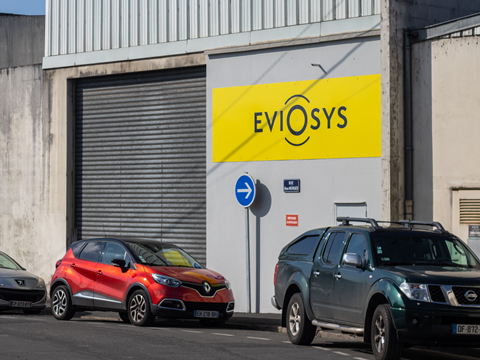
In its third annual ESG Report, Eviosys has set a new target to halve its greenhouse gas emissions by 2030 after surpassing its previous goals with a 20% reduction since 2020.
Apparently, the company has outperformed its greenhouse gas reduction target for the third year in a row, this time reaching its 2027 target and accelerating its own timeline by four years.
In the past year, it has implemented its ESG principles into the design and manufacture of its products – including Ecopeel, a food can that reduces the amount of material used and claims to reach a 20% decrease in CO2 emissions. It also features an easier opening mechanism in an effort to improve the pack’s inclusivity.
Aiming to improve its own sustainability metrics and ‘redefine industry standards’ in the pursuit of net zero by 2050, it has set its ‘most ambitious target yet’ – a 50% reduction in greenhouse gas emissions by 2030.
It has also submitted its emissions reduction objectives to the Science Based Targets initiative (SBTi) in a bid to demonstrate its commitment to leading the transition into sustainability-minded practices.
Additionally, EcoVadis has awarded its Platinum recognition to Eviosys after it scored 100/100 for environmental stewardship – apparently placing it in the top 1% of 100,000 companies evaluated worldwide.
Since 2020, Eviosys claims to have achieved a 20% cumulative reduction of volatile organic compound (VOC) emissions. This reportedly translates to a 10% reduction in 2022, with Eviosys attributing its reductions to ‘significant’ investments in new oxidizers and incinerators across all its plants.
Other major upgrades have been applied to multiple plants, including those in Murcia and Mérida, in a bid to transition into renewable energy. Now Eviosys has set its sights on installing solar panels at two more manufacturing facilities this year, a move hoped to increase the amount of renewable energy used across the company.
After measuring its Scope 3 emissions for the first time, the company is establishing long-term goals to bring them down. It intends to work with its suppliers and customers to align its efforts across the value chain.
Upstream and downstream greenhouse gas emissions are next on the agenda. Eviosys plans to tackle the carbon intensity of steel production and cut down on food waste, among other activities.
All Eviosys’ steel suppliers are said to be ResponsibleSteel-certified and target a minimum of 30% fewer greenhouse gas emissions by 2030, as well as complete carbon neutrality by 2050. Partnerships with charities like FareShare are expected to can and preserve surplus food, with Eviosys donating 112,500 cans to the cause.
The company also states that it has provided 192 employees with sustainability training. All managers across its global operations have been briefed about the impacts of sustainability on each area of business.
Eviosys also claims have reached a 4.4% pay gap in line with its inclusion and diversity goals. This figure is believed to be lower than both the industry average and the OECD pay gap benchmark of 12%. Women currently hold 30% of managerial positions within the company, the report continues.
“In a world that is battling the race against climate change, I am proud to see the extraordinary achievements of the past year, which Eviosys allowed us to exceed our target by four years,” said CEO Tomás López. “We remain focused on the future with even bigger goals, such as reducing emissions by 50% before 2030.
“Looking ahead to 2024, we remain constant in our pursuit of sustainability excellence, with a clear strategy and plan in place for continuous improvement and trail blazing for the industry to follow.”
Another 2023 Sustainability Report published by Henkel suggested that the company had cut 61% of CO2 emissions generated in the production process. It says that fourteen of its sites have converted to carbon-neutral production, and the company has also received Platinum certification from EcoVadis.
Meanwhile, Nestlé has calculated that it reduced its virgin plastic consumption by 14.9% in 2023, compared to the 2018 baseline of 956 kilotonnes. It estimates that the figure will reach 33% in 2025.
If you liked this story, you might also enjoy:
How are the top brands progressing on packaging sustainability?
The ultimate guide to global plastic sustainability regulation














No comments yet